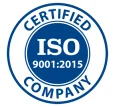
In the fast-paced world of the 21st century, where technology dominates every aspect of our lives, digital marketing course after 12th has become an indispensable tool for businesses aiming to thrive and succeed. Unlike traditional marketing methods, digital marketing leverages the power of the internet to reach a global audience, making it a critical component of any successful marketing strategy.
First and foremost, digital marketing offers unparalleled reach. With billions of people connected online, businesses can target specific demographics, ensuring their message reaches the right audience at the right time. This targeted approach not only increases the efficiency of marketing efforts but also increases the conversion rates.
Moreover, the real-time nature of digital marketing provides businesses with immediate feedback and data analytics. This enables them to adapt and refine their strategies on the fly, optimizing campaigns for maximum effectiveness. The ability to track and measure key performance indicators ensures a higher return on investment compared to traditional marketing methods.
Finally, the importance of digital marketing course after 12th cannot be overstated. Its ability to connect with a vast audience, deliver real-time insights, and adapt to changing trends positions it as the cornerstone of contemporary marketing strategies. Businesses that embrace digital marketing are not just staying relevant; they are actively shaping the future of successful marketing techniques.
Why To Choose Digital Marketing After 12th
Choosing Digital Marketing course after 12th can be a strategic move mainly because of 7 reasons.
- High Demand: Digital Marketing skills are highly in demand for most business may it be big or small, to promote their products or services online. This demand translates to more job opportunities for people with digital marketing skills.
- Cost-Effective Learning: Digital marketing courses are mostly affordable and more accessible compared to traditional marketing courses. Also, there are a lot of online platforms which offer Digital Marketing Courses, some even free of cost but all of them inexpensive compared to traditional education paths.
- Versatile Skill Set: By learning digital marketing, we can acquire a versatile skill set that can be applied across different industries and roles as digital marketing encompasses various disciplines such as social media marketing, search engine optimization (SEO), content marketing, email marketing, and more.
- Remote Work Opportunities: Digital marketing skills usually allow us to work remotely. This setup is ideal for people who prefer a work-from-home setup or need to travel while working.
- Entrepreneurial Opportunities: Digital marketing skills are of great value for aspiring entrepreneurs. With a good understanding of digital marketing principles, individuals can effectively promote products or services, launch successful online businesses, or freelance as digital marketers.
- Continuous Learning and Growth: Digital marketing, being a dynamic field, is constantly evolving with new technologies and trends. By choosing digital marketing, it allows individuals to engage in lifelong learning, staying updated with the latest advancements and strategies in the industry.
- Creative Expression: Digital marketing lets you express your creativity through content creation, graphic design, storytelling, and more. So, if you have a passion for creativity and innovation, digital marketing is the platform for you to showcase your talents while making a meaningful impact.
Building Blocks for Success
What are the key components of Digital Marketing course after 12th?
The digital era has transformed the marketing landscape, offering businesses opportunities to connect with their audience more effectively. Digital marketing, a multidimensional strategy, uses online channels to engage and convert customers. For that, it’s essential to understand the key components that constitute digital marketing’s foundation.
- Website Design and Optimization: A well-designed website serves to be the base of any digital marketing strategy. Ensuring your website is not only visually appealing but also user-friendly and optimized is an absolute necessity for search engines (SEO) and for the visitors who land there to learn more about your brand, products, and services.
- Search Engine Optimization (SEO): SEO is the process of enhancing your website’s visibility on search engine results pages (SERPs) organically. By optimizing various elements such as keywords, meta tags, and content structure, the website’s ranking can be improved, making it more visible to potential customers who are actively searching for some relevant information.
- Content Marketing: Compelling content is the foundation of any successful digital marketing strategy. Whether you’re writing blog entries, films, infographics, or social media updates, producing worthwhile and pertinent material will draw in and keep your target audience interested. In addition to increasing brand exposure, content marketing creates your authority in your field and fosters audience loyalty and trust.
- Social Media Marketing: SMM stands for Social Media Marketing. It’s a way for businesses and individuals to promote their products, services, or brand on social media platforms like Facebook, Instagram, Twitter, and LinkedIn. In simple terms, it involves using social media to connect with your audience, share content, and engage with them to build relationships and increase awareness. SMM can include activities such as creating and sharing posts, running paid advertising campaigns, responding to comments and messages, and analyzing performance metrics to optimize strategies. It’s all about leveraging the power of social media to reach and connect with potential customers in a meaningful way.
- PPC: PPC stands for Pay-Per-Click. It’s a type of online advertising where advertisers pay a fee each time their ad is clicked. In simple terms, it’s like buying visits to your website rather than earning them organically. PPC ads appear on search engines like Google or Bing, as well as on social media platforms and other websites. Advertisers bid on specific keywords relevant to their target audience, and when someone searches for those keywords, the ads may appear. If the user clicks on the ad, the advertiser pays a certain amount to the platform where the ad was placed. PPC is an effective way for businesses to drive website traffic and increase sales or leads.





